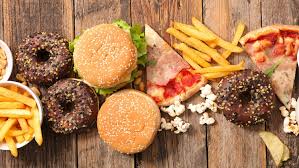The Great Hyperpalatable Food Hoax
“Hyperpalatable.” Have you heard this word before? It’s somewhat new to our modern day vernacular, used to describe all sorts of super sweet, salty, and fatty foods engineered to deliver a wallop of flavor that far surpasses the flavor available in natural foods (fruit, veggies, grains, etc.). Hyperpalatable foods are addictive and keep us reaching for more cookies, more chips, more fries, or more of that luscious, rich cheese dip even when our bellies are full and our minds say, “no more.”
These engineered foods can keep us stuck in a pattern of overeating because it’s quite challenging to stop eating them once we start. In fact, they are designed to be difficult to stop eating, and it has very little to do with willpower. These junk foods either possess excessive amounts of salt, sugar, or fat or they’ve been engineered to have just the right ratio of sugar/fat, salt/sugar, salt/fat. In either case, the eater gets a nice hit of dopamine – the “feel-good” neurotransmitter associated with bliss, euphoria, concentration, and motivation – with each bite. This trains our taste buds to not only receive less pleasure from the subtle but delicious flavors of whole foods but to desire and seek out hyperpalatable foods instead. These cravings can then lead to food addiction.
To reiterate: food chemists intentionally suffuse food products with increased levels of fat, sugar, salt, flavors, and food additives to tap into and train our brain’s reward system to desire and consume these engineered foods. I hope you find this information as creepy as I do.
David A. Kessler, author of The End of Overeating: Taking Control of the Insatiable American Appetite has reported that restaurant chains like Chili’s cook up “hyper-palatable food that requires little chewing and goes down easily.” He uses the Snickers bar as another common example of a hyperpalatable food, describing it as, “extraordinarily well engineered.” He writes, “As we chew it, the sugar dissolves, the fat melts and the caramel traps the peanuts so the entire combination of flavors is blissfully experienced in the mouth at the same time.”
Wow.
The intense flavors we experience when we eat these junk foods are simply not available in natural foods. An apple is sweet, and pineapple is really sweet, but neither holds a candle to the utterly intense sweetness of an Oreo or a Girl Scout cookie, in which oodles of sugar are paired with just the right amount of fat. It’s no wonder some people can plow through an entire sleeve of cookies before realizing what has happened. The pleasure center of our brain lights up as dopamine is released and we feel happy and calm after bingeing on those cookies. Pizza, chips, and french fries top the list of super salty hyperpalatable foods; cheeseburgers and bacon are other examples of that irresistible and exquisite salt/fat combo. When faced with the choice between a bowl of lightly salted brown rice, roasted and salted potatoes or sweet potatoes, or salted vegetables versus any of the aforementioned super salty addictive foods, I think we all know what’s going to win. It’s no wonder many people can’t stop at one or two pieces of pizza, even if it means their bellies hurt afterwards and they have to unbutton their pants when all is said and done. Again, that pizza is engineered to keep us eating it long after we’re full.
Your willpower muscle will likely be a pretty weak muscle around hyperpalatable foods. Remember, these foods are designed to be addictive, so it’s far less about willpower and more about the way your brain has been conditioned to crave and enjoy these foods. Unfortunately, we live during a time when we are surrounded by hyperpalatable foods; therefore, my best advice is to simply limit your exposure to them. Don’t bring these foods into your home regularly. If they are not in your house, you are far less likely to eat them. If you’re at a social gathering and find yourself faced with a big bowl of chips or sweets, do your best not to start eating them. If you start, you’ll struggle to stop. Seek out anything resembling a whole food instead and save yourself both the remorse and bellyache later.
Staying clear of hyperpalatable foods will mean avoiding most chain restaurants and packaged foods in the grocery store, especially packaged snack foods like cookies, crackers, chips, breakfast cereals, muffins, soda, and everything else I’ve already mentioned. You can Google “hyperpalatable foods” to find online lists if you still feel unsure whether or not something might fall into that category. I will never forget how one of my nutrition professors told us very matter-of-factly, “If something has a label, think twice about eating it. If you don’t understand the ingredients, don’t even think about eating it.”
In summary, it might work best to think about ending the consumption of hyperpalatable foods as a break-up. There will be a period of mourning. You will miss them, even if it was a one-sided relationship. And you may even feel crummy for a while while your body detoxes and goes through withdrawal. But the other side of this break-up will be a fresh start complete with taste buds that can actually taste and enjoy the natural sweetness of an apple, appreciate the rich, uncomplicated flavor of raw nuts, and feel satisfied with roasted Brussels sprouts or sweet potatoes as a snack. I know it sounds weird now, but it’s possible. And the rewards are far greater than a short-lived dopamine hit.


Follow